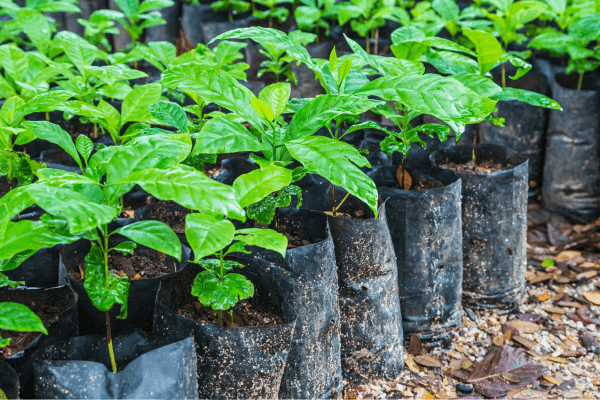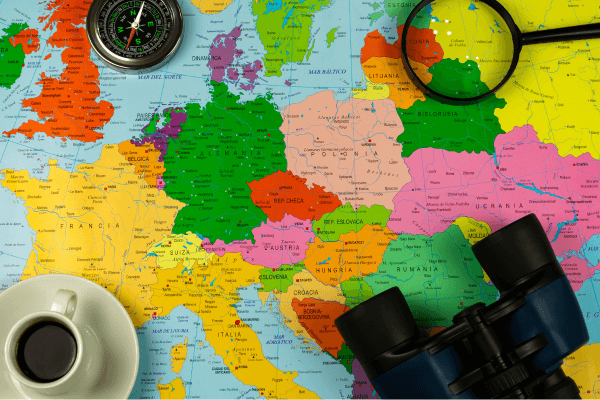Brazilian Coffee: A Journey Through Regional Flavors
Brazil is widely recognized as one of the largest coffee producers and exporters in the world. With its rich geographical and climatic diversity, the country offers an incredible variety of flavors and aromas from different producing regions. In this article, we will embark on a journey through the regional flavors of Brazilian coffee, exploring the unique characteristics of each location and discovering what makes Brazilian coffee so special.
Brazilian Coffee: History of Coffee in Brazil
Before delving into regional flavors, it is important to understand a little about the history of coffee in Brazil. The coffee plant was introduced in the country in the 18th century, and quickly became one of the main agricultural crops in Brazil. From then on, coffee began to play a fundamental role in the Brazilian economy and influenced people’s culture and way of life.
Brazilian Coffee: Southern Region – Full-bodied and Intense Coffees
We begin our journey through regional flavors in the south of Brazil, where we find full-bodied and intense coffees. The southern region is known for its milder temperatures and soils rich in nutrients, which contributes to the development of coffee beans with an intense flavor and balanced acidity. Southern coffees often feature notes of chocolate, caramel and nuts, providing a unique sensory experience.
Brazilian Coffee: Southeast Region – Balance and tradition
Advancing to the Southeast region of Brazil, we find one of the most traditional areas in coffee production. The states of Minas Gerais, São Paulo and Espírito Santo are known as the main producing regions in the country. Southeast coffees are characterized by their balance between harmony, body and sweetness. They feature a wide variety of flavor profiles, from fruity and floral to chocolatey notes. It is in this region that we find the famous Brazilian coffee of the “Mogiana” type, which stands out for its smoothness and striking aroma.
Brazilian Coffee: Northeast Region – Exotic coffees full of personality
Continuing our journey, we arrived in the Northeast of Brazil, a region with a hot and humid climate. Northeastern coffees are known for their exuberance of flavors and aromas, with a more pronounced acidity and fruity and citrus notes. The region is home to a variety of coffee called “Yellow Bourbon”, which is prized for its sweetness and full body. Northeast coffees are a true explosion of personality and provide a unique experience for drink lovers.
Brazilian Coffee: North Region – Single origin specialty coffee
Continuing on our journey, we arrive at the North region of Brazil, where we find a more limited but high quality coffee production. The Amazon region has unique climatic conditions, with abundant rainfall and fertile soils. Northern coffee is considered a single origin coffee, with distinct characteristics of each farm and microclimate. Beans from this region usually have notes of tropical fruits, carambola and even the same floral nuances. These specialty coffees from Northern Brazil are highly prized by coffee connoisseurs around the world.
Midwest Region: Altitude and tolerated coffee
Finally, we arrive in the Midwest region of Brazil, known for its high altitude coffee production. The region is marked by mountains and plateaus, which provide ideal conditions for the cultivation of high quality coffee beans. Coffees from the Midwest are characterized by their complexity and joy, with notes ranging from red fruits to delicate floral notes. These coffees are prized for their balanced acidity and medium body, providing a refined sensory experience.
The importance of sustainability in coffee production
In addition to the diversity of flavors, it is essential to highlight the importance of sustainability in coffee production in Brazil. The country has increasingly stood out in the adoption of sustainable agricultural practices, aimed at preserving the environment and the well-being of producing communities.
Many coffee producers in Brazil have sought certifications that attest to sustainable production, such as the UTZ Certified seal, the Rainforest Alliance Certificate and the Organic Certificate. These certifications guarantee that coffee production is classified according to environmental, social and biological criteria, promoting responsible cultivation and conservation of natural resources.
In addition, there is a growing movement towards the production of specialty coffees, which value quality, traceability and fair remuneration for producers. This trend has boosted family farming and the local economy, promoting the sustainable development of producing regions.
Coffee as a cultural heritage in Brazil
Coffee is deeply rooted in Brazilian culture and is considered one of the country’s assets. From the cultivation process to the way it is prepared and consumed, coffee is part of everyday life for Brazilians and is present on several occasions, whether at home, at work or in traditions.
See More: https://amoartesanato.com/






